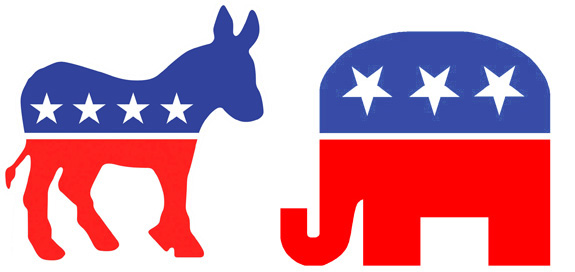In 1995, I became hooked on Equal Time, a political talk show on CNBC. The premise revolved around a then novel approach to feature two female co-hosts, one Republican and one Democrat. When the show began, Mary Matalin served as the conservative voice and Jane Wallace was her liberal counterpart. The show featured phone call ins with viewers, guests (interviewed in a relatively “soft-ball” fashion), and talk between the hosts. I almost achieved personal TV fame as a call-in when I had a pre-interview with the producer. Alas, the call-in didn’t occur as the Producer later told me “something came up.”
Equal Time is the only political talk show I’ve ever watched faithfully, although I stopped watching after several years due to host changes. Most talk shows just annoy me as they tend to be, as my husband calls them, “yelling heads” as opposed to talking heads. The things I loved about Equal Time were two women hosts with often different views, who conducted the show with respect (always) and humor (usually). A life-long Democrat, I listened to and learned from the show, particularly regarding Republican views.
At the WLA, our archival collections inherently qualify for equal time because all, except one, are from or about women. What we do not have is a representation of all sides of the political spectrum. The WLA has at least 7 collections of women who either served in political office and/or were politically active: all self-identify as Democrats.
When I first came to the WLA I wondered the reason for only Democratic women. Other staff and I surmised that maybe it is because Loyola is known as a liberal Catholic university so mainly Democratic women think to donate here. Or perhaps it’s just coincidence that the majority of politically active women who donated to the WLA just happen to be Democrats.
No matter the reasons, there isn’t much equal time going on at the WLA in the area of political affiliation. WLA records should reflect many voices, ideas, thoughts, and actions. The more diverse the collections, the more rich an archive.
I would like to change the status quo at the WLA regarding stated party affiliations. Do not get me wrong, Democratic activist women and/or politicians are totally welcome at the WLA. I’d also like to welcome women Republicans, Tea Party, Libertarians, Independents, and whoever else I may be forgetting to consider donating their records. The more diverse the WLA becomes regarding political collections, the more equal time for differing viewpoints.
Nancy became Director of the WLA in spring, 2013. Prior to that, Nancy was an archivist and records manager at a wildlife research facility for the USDA in Colorado. Nancy has worked in the archival field since 1999. When not at the WLA, Nancy enjoys spending time with her family and knitting.
Loyola University Chicago’s Women and Leadership Archives Blog is designed to provide a positive environment for the Loyola community to discuss important issues and ideas. Differences of opinion are encouraged. We invite comments in response to posts and ask that you write in a civil and respectful manner. All comments will be screened for tone and content and must include the first and last name of the author and a valid email address. The appearance of comments on the blog does not imply the University’s endorsement or acceptance of views expressed.

